Black Women A Celebration of Activists and Pioneers Presented by Champlain College Students and the Office of Diversity and Inclusion
February 29, 2016
By Ame Lambert, Chief Diversity Office at Champlain College
You are about to meet some incredible black women, who will honor the luminaries that inspire them. To appreciate the triumph they will celebrate, it helps to have an understanding of the obstacles encountered and overcome. This is why my introduction today involves setting appropriate context by shining a light on the challenges black women face.
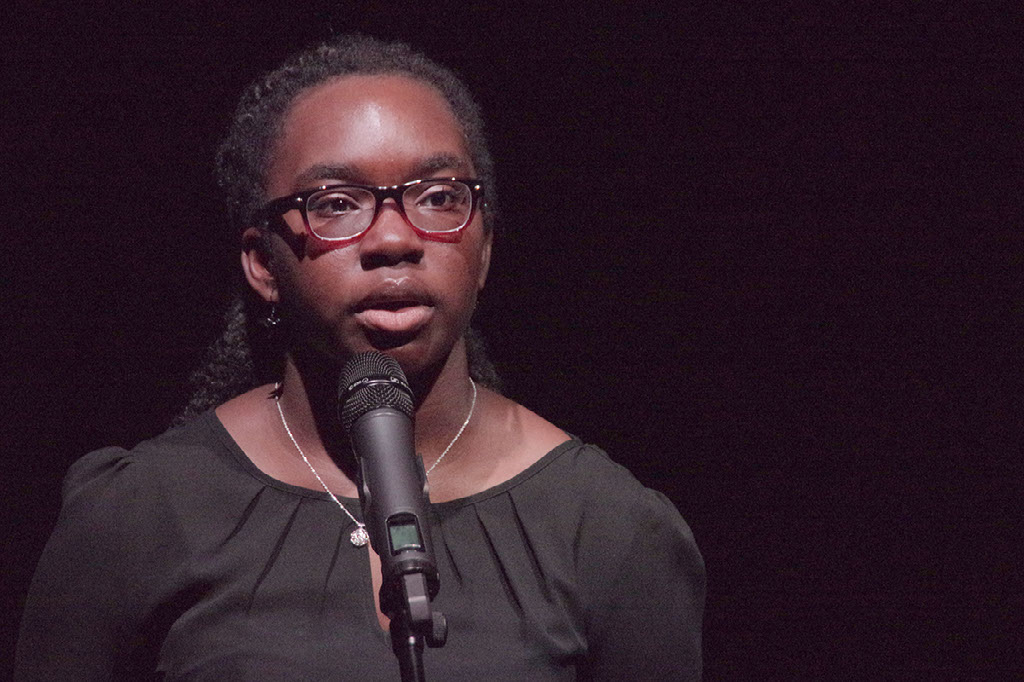
Black woman
Who else embodies such a high level of visibility and invisibility?
When people say women one image often comes to mind. We appreciate the struggles of all women, non-binary folks and men of color. Their struggles are often our own and we are partners with them and white male allies in working for equity. We must also speak about the additional and unique challenges we face as women of color. You've heard of women earning 78 cents on the dollar that white men do. Yeah, that's white women. It is 67 cents for us and downhill from there. You've heard of the glass ceiling... that's a challenging reality- for cis gendered, heterosexual, white women. It is the concrete ceiling for us and the sticky floor for Latinas. Asian American and American Indian women are not event part of the leadership conversation.
When people turn their eyes on blackness, it is often to focus on injustices such as the prison population, police brutality, the achievement gap and high levels of crime, violence, unemployment and poverty. Here, the light often shines on black men, overlooking the many ways black women are impacted by these issues.
Yet, we are on everyone's radar.
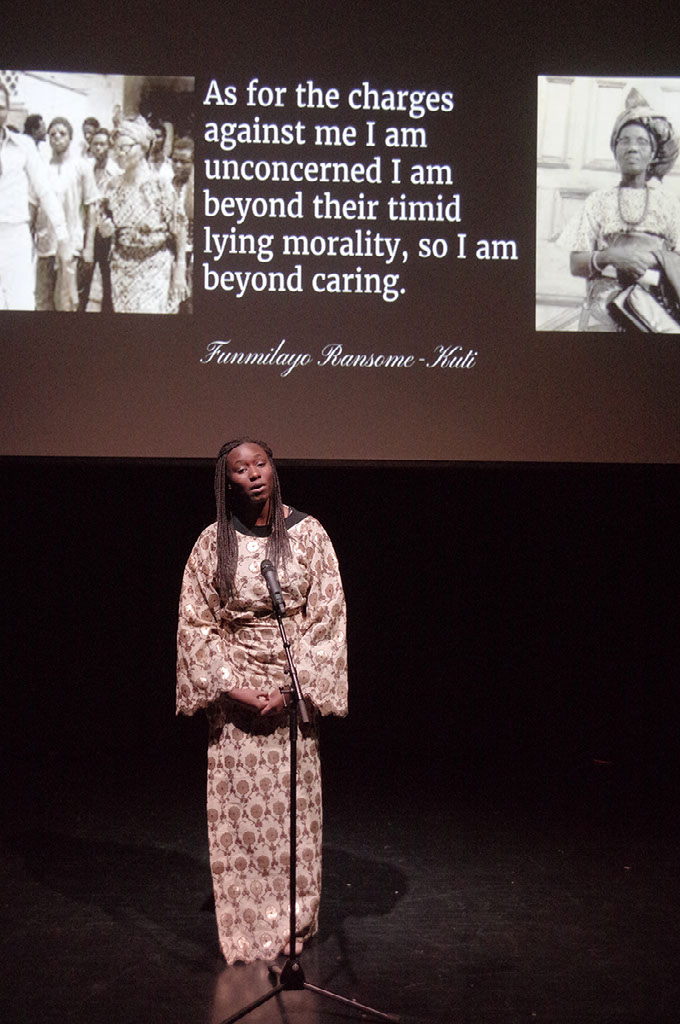
Black Woman
Our hair is a mystery that invites the exploration due an alien life form. Our lips, our hips, our size, our skin. Want to understand objectification? Look this way.
Angry black woman is an archetype cemented in the collective consciousness of the United States. If people are not calling us that, then they are treating us like that. And when we get angry because we are human and have a right to be angry in the face of injustice and unrelenting exclusion, people feel justified in holding on to their stereotypes since we have confirmed it is true. Talk about a set up. Our normal way of being is perceived as threatening - we are too loud, too aggressive, too confrontational, too disagreeable - our very existence is a source of discomfort to what has been construed as the right way to be.
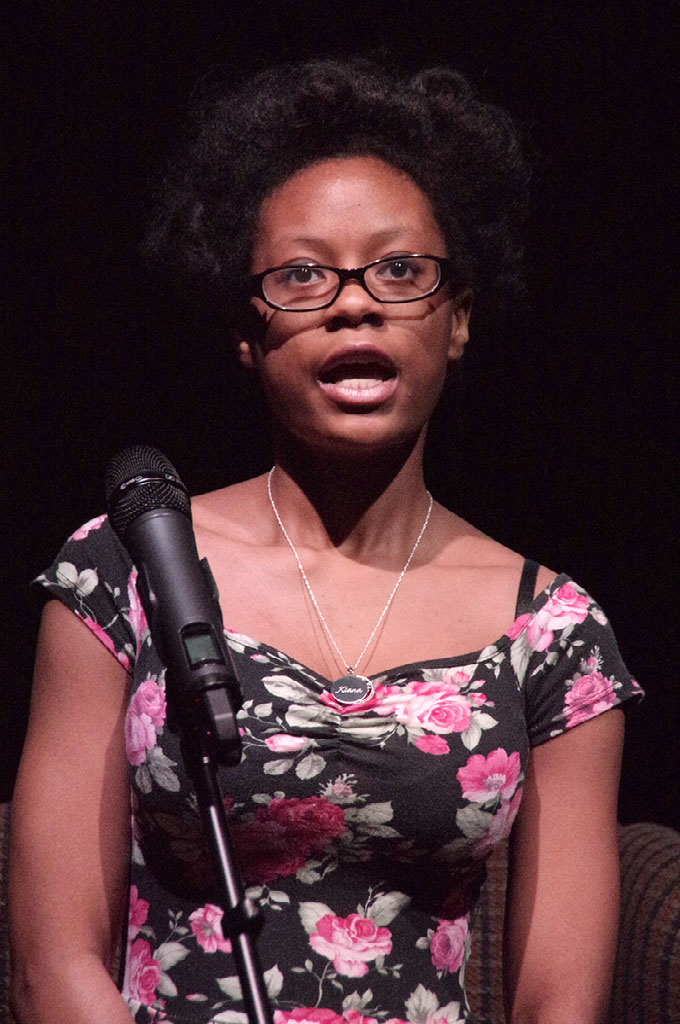
Black Woman
How many times have you heard black woman and strong in the same sentence? How often do you hear white people you know spoken about as strong white ____? And this perceived strength is confining...creating a double bind, because it both limits our ability to reach out for help and our ability to be viewed as needing help.
That we are powerful is true. So are many other humans. Have you ever asked why though? We are strong because we have to be.
The patriarchical, heternormative idea of women being valuable, delicate and worthy of being protected was never extended to us. In our own communities, heterosexual black men must contend with the patronizing and destructive messages that we are more difficult to handle than white women, not as beautiful and we do not provide access to the halls of power, privilege and acceptance that white women can. In addition to internalizing these messages, Black heterosexual women are constantly encouraged to date outside their race so they can find a partner capable of providing fidelity and stability. In an era where mass incarceration has resulted in a lost generation of black men, we are also constantly challenged to lower our high standards such as being college educated and desiring to find a partner who also has a college degree. Please tell me, what other communities are having these kinds of conversations?
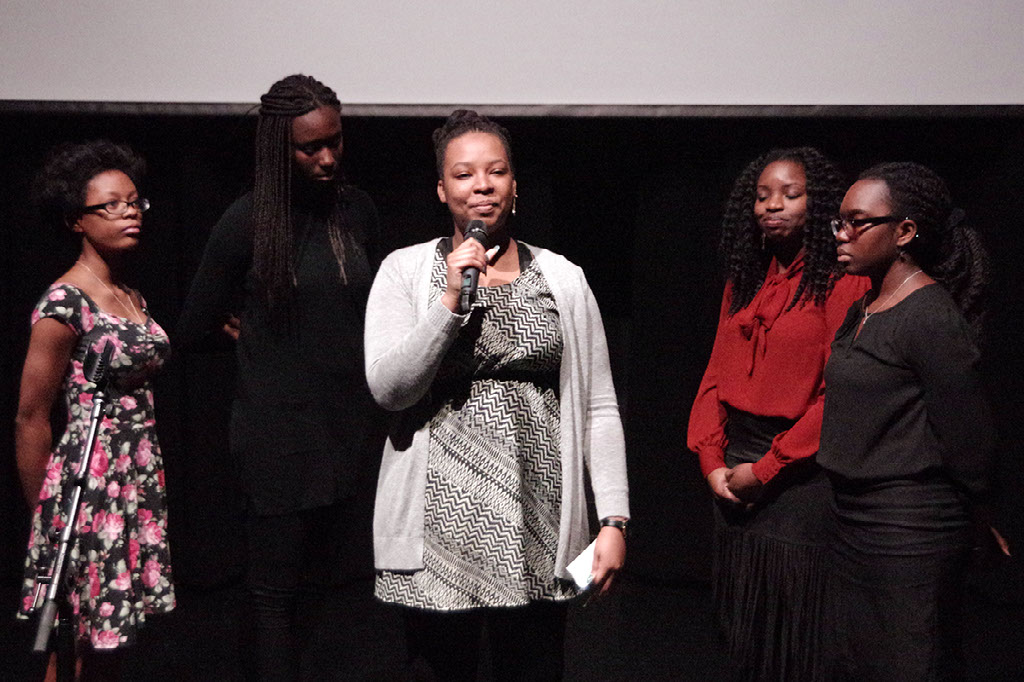
Black woman
We are both desexualized and hyper sexualized. We are constantly made in other’s image and constantly being forced to conform to others sense of how we should be. Yet, we are rarely offered a true seat at the table. So we end up double losers, with no power and a lost sense of self and the confidence that comes with it.
Who gets us? Where are our allies? Who is speaking up for us? Who is walking with us and working for us? Who validates us? Too few. We appreciate all those who do, even as we recognize they are rarely ones with power to make real change.
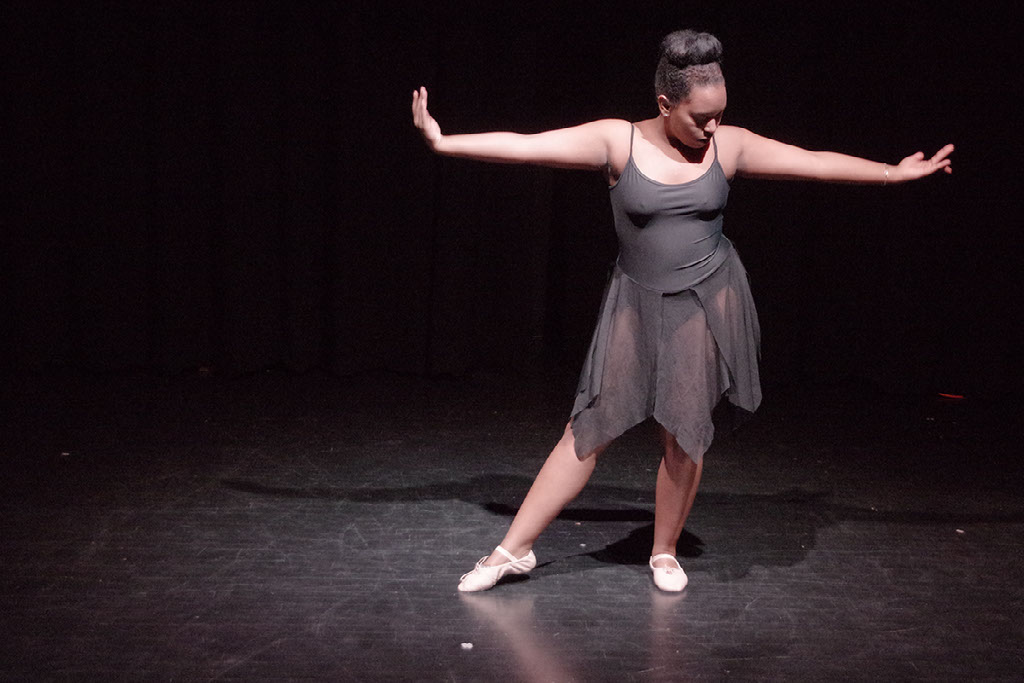
Black woman
We are disproportionately the sole or primary earners in our homes, disproportionately the sole or primary parents when we have children, disproportionately caregivers to other relatives and we are disproportionately poor.
Our middle class incomes are less stable than our white peers and often have to do more for the reasons just mentioned, leading to a lower standard of living and a lower quality of life. We suffer disporportionately high rates of high blood pressure, diabetes, obesity, fibroids and many other diseases and we disporportionally die from these ailments. Research is now beginning to shine a light on the role that racism, sexism and token stress directly and indirectly play in creating these disparities. An example of this research is a 2010 National Institute of Health study that showed that the average middle aged black woman is biologically 7.5 years older than the average white woman her age. Black might not crack on the outside, but this stuff is killing us.
It is literally death by a thousand cuts.
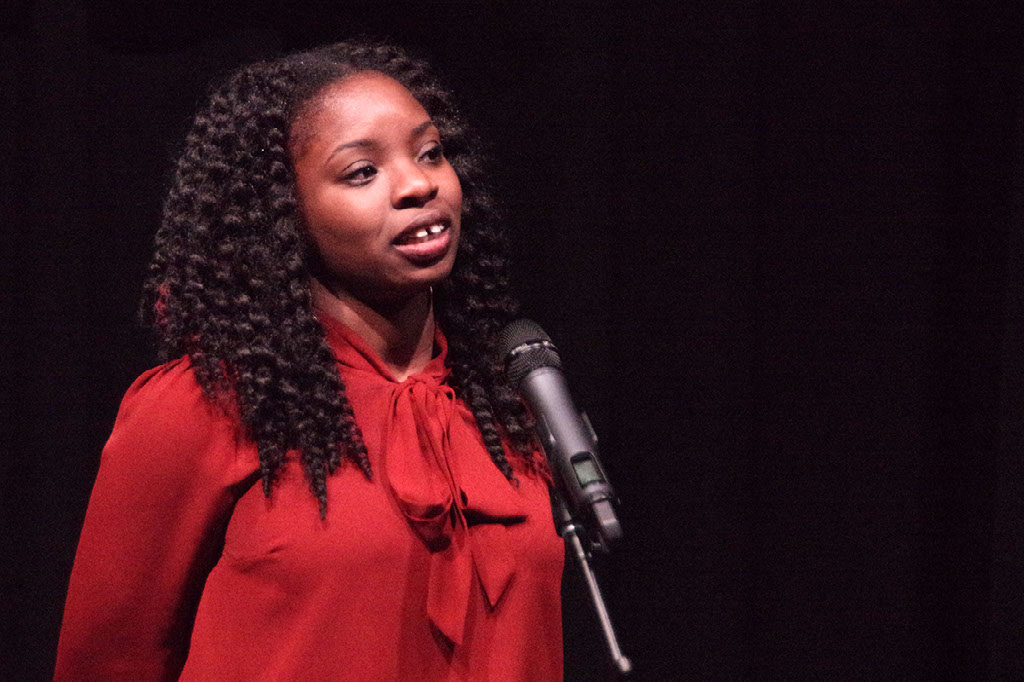
Black woman
I hope it is becoming clear that we have much to yell about, that the angry black woman trope was created as a way to silence us, deny uncomfortable reality and avoid engagement. I hope it is clear that the real question is not why we are so angry, but why aren't you? W.E.B du bois coined the term double consciousness. Here is his quote that describes this reality. “It is a peculiar sensation, this double-consciousness, this sense of always looking at one’s self through the eyes of others, of measuring one’s soul by the tape of a world that looks on in amused contempt and pity. One ever feels his two-ness, an American, a Negro; two souls, two thoughts, two unreconciled strivings; two warring ideals in one dark body, whose dogged strength alone keeps it from being torn asunder. This is the challenging reality faced by Black men. Black women share this reality, but their experience is further compounded by gender, leading to a triple or more consciousness, as they are locked out of multiple worlds.
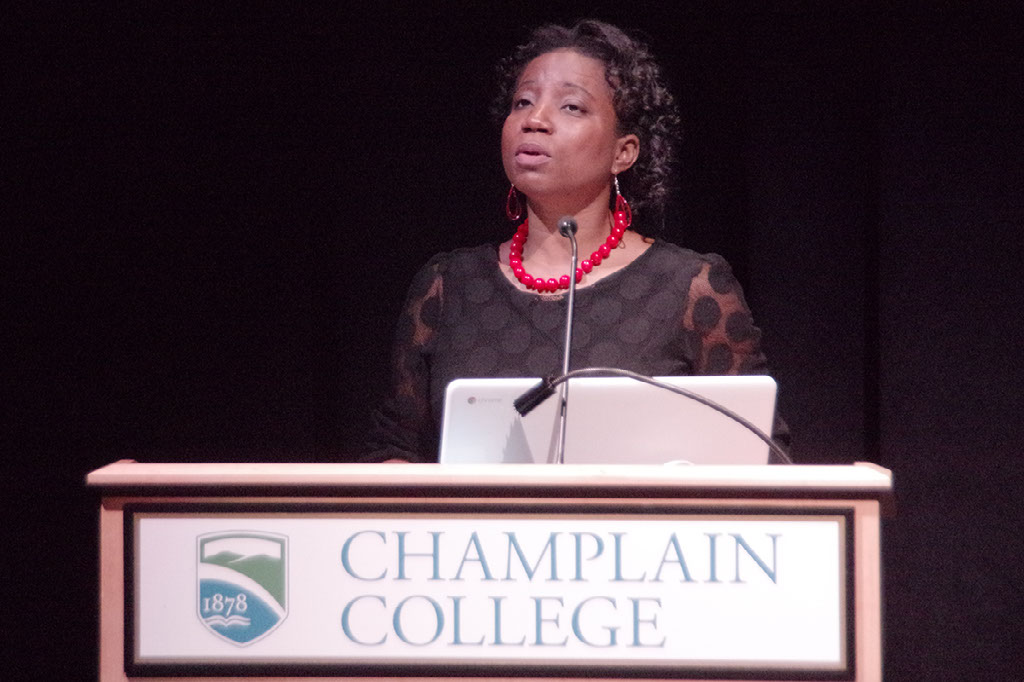
Black woman
I could go on, but our focus today is on triumph, not tragedy. As troubling as these realities are, this is not a story of gloom and doom, it is one of victory. If there ever was a group that has made lemonade out of lemons, it is black women. In the midst of miseducation, hate, and systemic oppression, we have created sisterhood...we put in the time and the work to earn the right to call each other girl, girlfriend and sister. We affirm each other, validate our experiences and check each other when needed. We cry together, laugh together, pray together and have each other's back
Our hair is a source of wonder and pride...yes, we made natural hair a global movement. We have helped the world come to understand and love bootyliciousness and thick women everywhere are grateful for our courage. Black women, often led by queer black women, created hashtags like #blacklivesmatter, #Sayhername and #oscarsowhite to give voice to the inequity in our communities and created slogans like "black girls rock" and "black girl magic" to affirm our awesomeness in a world that too often does not.
Black women show up every day to schools and workplaces that do not know them, and as a result cannot love them and we still find a way to deliver...with style. We fight multiple isms and ignorance on every level and somehow find a way to survive and sometimes even thrive.
If you want to understand resilience, look this way.
We have fought for, and found, a positive self-image and a love that accepts us and nurtures the many others around us whom we are always ready to embrace. We share wisdom, we mentor, we love, we forgive and we speak truth. This is the awesome power we celebrate today as we recognize those who have used their black womanhood to positively impact the world. I honor them and the many black women who touch my life, including the ones you are about to see and our external and internal community members present here today. These women help me find the strength to keep moving on, no matter what.
Black woman
I am so proud to be one.
A special thank you for the efforts of Tara Alexander, Briana Martin, the performers, the Office of Diversity and Inclusion staff and media services who have put in hours of time to pull this together.
And to Joanne Farrell for bringing her expertise to this production.